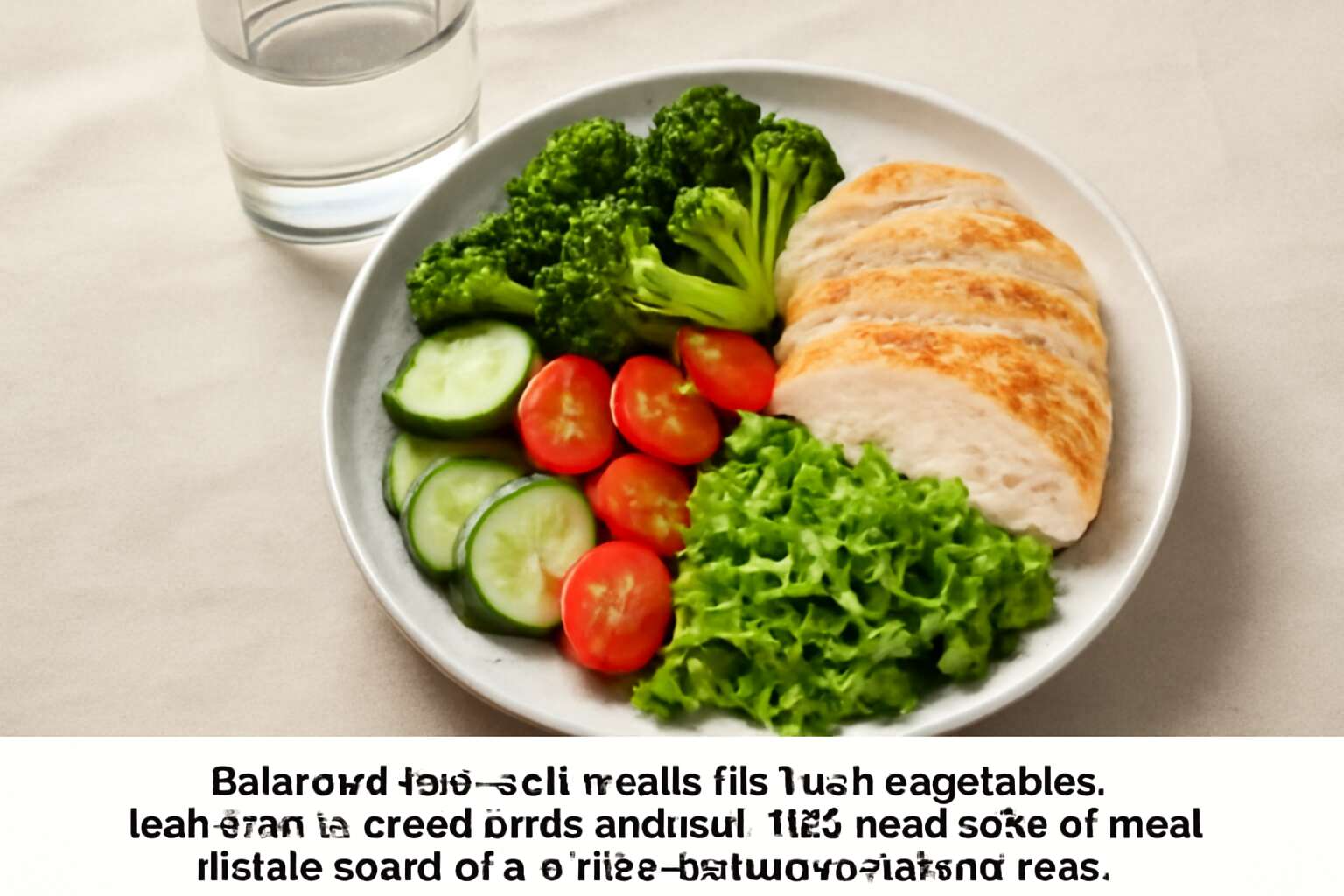Understanding the 3 Hour Glucose Test
What Is a 3 Hour Glucose Tolerance Test?
The 3 Hour Glucose Tolerance Test is more than just a medical procedure—it’s a voyage into the body’s intricate dance with sugar. This test measures how effectively your body processes glucose over a span of three hours, providing crucial insights into your metabolic health. With the surprising statistic that nearly one in ten adults worldwide may have undiagnosed diabetes, understanding this test becomes vital for early detection and management.
To prepare for this journey, many are advised to follow a low carb diet before 3 hour glucose test. This dietary adjustment helps stabilise blood glucose levels, ensuring more accurate results. The process involves fasting initially, then consuming a sugary solution, after which blood samples are taken at intervals. This sequence reveals how your body responds to glucose challenges, highlighting potential issues long before symptoms manifest.
By grasping the nuances of this test, you gain a clearer picture of your health destiny. Whether you’re aiming to prevent diabetes or simply curious about your metabolic resilience, understanding the role of a low carb diet before 3 hour glucose test can be transformative in your health journey. It’s a small step that sets the stage for a healthier future, unlocking the mysteries within your own bloodstream.
Purpose and Importance of the Test
In the shadows of modern medicine, the 3 Hour Glucose Tolerance Test stands as a sentinel, revealing the silent whispers of your body’s inner workings. Its purpose is not merely to diagnose but to unveil the subtle dance of glucose and insulin, lurking beneath the surface of health. Like a cryptic manuscript, this test deciphers how effectively your body processes sugar, exposing hidden vulnerabilities that could herald the onset of diabetes.
The importance of this examination cannot be overstated. Without understanding your metabolic resilience, you risk wandering blindly into the darkness of undiagnosed conditions. For those prepared to confront this truth, a low carb diet before 3 hour glucose test can be a vital aid. It acts as a stabilising force, softening the erratic spikes and troughs of blood glucose levels, thus illuminating a more accurate picture of your body’s true response. This dietary shift is not merely a preparatory step but a journey towards clarity—an essential act in the quest for health.
Preparation Guidelines for Accurate Results
Preparation for the 3 Hour Glucose Test is an art as delicate as a midnight ritual, demanding precise adherence to guidelines to unveil the true nature of your body’s metabolic secrets. A crucial element of this preparation is understanding the importance of a low carb diet before 3 hour glucose test, which can significantly influence the accuracy of the results. By limiting carbohydrate intake in the days leading up to the test, you help stabilise blood sugar levels, preventing the chaos of erratic spikes that can obscure the body’s genuine response.
To ensure clarity, patients are often advised to follow specific instructions, such as fasting for at least 8-12 hours before the procedure. Additionally, maintaining a low carb diet before 3 hour glucose test in the days beforehand can stave off false readings caused by recent carbohydrate consumption. Some clinics recommend:
- Avoiding sugary snacks and refined grains
- Focusing instead on proteins and healthy fats
- Refraining from strenuous exercise that may skew results
By observing these nuanced guidelines, you contribute to a more accurate diagnosis, illuminating your body’s true capacity to process sugar amidst the shadows of uncertainty. The low carb diet before 3 hour glucose test acts as a silent guardian, sharpening the lens through which your metabolic resilience is revealed.
Role of Diet Before the Test
Why Dietary Choices Matter
In the shadowy corridors of medical preparation, the significance of a low carb diet before 3 hour glucose test cannot be overstated. This seemingly simple dietary choice can dramatically influence the accuracy of the results, revealing truths hidden beneath the surface of your body’s metabolic secrets. When glucose levels are artificially distorted by recent carbohydrate consumption, the test’s ability to diagnose insulin resistance or gestational diabetes diminishes, leaving both patient and practitioner in the dark.
By embracing a low carb diet before 3 hour glucose test, you essentially silence the chaos of blood sugar spikes, allowing a clearer picture to emerge. This disciplined approach ensures that the body’s response to glucose is measured in its most authentic state. Sometimes, the difference between a false alarm and a vital diagnosis lies in the quiet, deliberate act of curbing carbohydrate intake, creating an environment where the true nature of your body’s glucose handling can be unveiled.
For those preparing for this test, understanding the role of dietary choices is vital. It’s not merely about avoiding sugar but about respecting the delicate balance of your metabolic universe. A well-considered low carb diet before 3 hour glucose test can transform the procedure from an uncertain ordeal into a revealing journey through the labyrinth of your internal workings.
Typical Dietary Recommendations
Embarking on a journey towards clarity, the role of diet before the 3 hour glucose test acts as a silent conductor guiding the symphony of your body’s response. When preparing for this diagnostic procedure, the emphasis shifts from mere avoidance to intentional, mindful nourishment. A low carb diet before 3 hour glucose test is not just a recommendation—it is an act of respecting the delicate choreography happening within your metabolism. By reducing carbohydrate intake, you diminish the risk of artificially inflated blood sugar levels, allowing your body’s natural rhythm to reveal truths otherwise obscured.
Typical dietary recommendations often suggest a period of carbohydrate moderation—sometimes up to 24 hours prior—to ensure the most authentic results. This involves steering clear of foods rich in sugars and starches, replacing them with fibre-rich vegetables, lean proteins, and healthy fats. In some cases, a structured plan may include:
- Eliminating sugary foods and beverages
- Limiting bread, pasta, and rice
- Focusing on proteins like eggs, fish, and poultry
- Incorporating non-starchy vegetables for added fibre and nutrients
This meticulous approach helps silence the chaos of blood sugar spikes, allowing the laboratory to unveil the true story of your glucose handling capacity. The low carb diet before 3 hour glucose test transforms an otherwise routine procedure into a revealing exploration of your metabolic universe—unmasking hidden imbalances with every measured response.
Common Mistakes to Avoid
When it comes to the low carb diet before 3 hour glucose test, many folks underestimate how crucial proper preparation truly is. A common mistake is thinking that just skipping a snack or two will do the trick. In reality, inconsistent carbohydrate consumption can lead to skewed results, making your body’s response appear more erratic than it actually is. This isn’t a time for guesswork—precision counts!
Another misstep is ignoring the importance of sticking to the recommended dietary guidelines. For example, indulging in high-sugar treats or refined carbs can artificially elevate blood sugar levels, defeating the purpose of a low carb diet before 3 hour glucose test. Remember, the goal is to silence the chaos of blood sugar spikes and let your body’s natural rhythm shine through.
- Failing to follow a consistent low carb diet before 3 hour glucose test can lead to confusing results, making it tougher for your healthcare provider to interpret your glucose handling capacity accurately.
- Overeating or consuming unexpected carbs close to the test can cause blood sugar levels to spike unexpectedly, which might suggest insulin resistance when it’s simply a dietary misstep.
So, avoid these common pitfalls. Stick to the plan, keep the carbs in check, and let your metabolism speak for itself—without interference from last-minute temptations or sloppy eating habits!
Low Carb Diet and Its Impact on Glucose Testing
What Is a Low Carb Diet?
In the shadowed corridors of health, few dietary choices cast a longer, more mysterious silhouette than a low carb diet before 3 hour glucose test. This approach, often shrouded in secrecy and misunderstanding, can significantly influence the results of your glucose tolerance assessment. A low carb diet, meticulously crafted to limit carbohydrate intake, aims to reduce the unpredictable fluctuations of blood sugar levels. It’s as if you’re trying to quiet a restless tempest within your body, seeking a clearer reflection of your metabolic state.
By adhering to a low carb diet before 3 hour glucose test, some individuals find their blood glucose readings become less erratic, offering a more precise picture of glucose metabolism. This dietary strategy involves consuming fewer foods that rapidly spike blood sugar, such as bread, sweets, and starchy vegetables. Instead, it emphasises proteins and healthy fats, which help keep the body’s internal machinery steady and less prone to sudden surges. Such a diet can be a silent guardian during the testing process, but beware—departing from these guidelines might obscure the true nature of your body’s response to sugar.
Benefits of a Low Carb Diet Before the Test
Within the labyrinth of metabolic responses, the low carb diet before 3 hour glucose test serves as a silent catalyst, subtly redefining the narrative of blood sugar evaluation. When carbohydrate intake is intentionally limited, it’s as if the body’s internal symphony shifts to a more harmonious tone, reducing the unpredictable fluctuations that can cloud test results. This strategic dietary choice can illuminate the true character of your glucose metabolism, revealing insights often obscured by more erratic blood sugar patterns.
Opting for a low carb diet before 3 hour glucose test can offer tangible benefits, especially for those whose bodies tend to overreact to carbohydrate-rich foods. By prioritising proteins and healthy fats, the body steadies itself, preventing sudden surges that might otherwise complicate diagnosis. For some, this approach becomes a form of silent resilience—calming the internal chaos and providing a clearer window into their metabolic health.
- Reduced blood sugar spikes
- More consistent glucose readings
- Enhanced accuracy of test results
Such benefits are not merely academic; they can profoundly impact the diagnostic clarity for individuals navigating the complexities of glucose intolerance or diabetes risk. The low carb diet before 3 hour glucose test isn’t just about food choices—it’s about understanding the delicate balance within, a strategic move to uncover truths that might otherwise remain hidden beneath the surface of fluctuating blood sugar levels.
Potential Risks or Concerns
A low carb diet before 3 hour glucose test can be a double-edged sword, subtly influencing the accuracy of the results. While it may help stabilise blood sugar levels temporarily, there are potential risks or concerns that deserve attention. For some individuals, drastically reducing carbohydrate intake prior to the test might lead to an atypical metabolic response, potentially skewing the results and obscuring the true picture of glucose tolerance.
Moreover, a sudden shift in diet can create feelings of fatigue or lightheadedness, especially if the body is unaccustomed to such restrictions. It’s crucial to remember that the low carb diet before 3 hour glucose test should be approached with caution, as it may not be suitable for everyone.
- Prolonged restriction can cause nutritional imbalances
- It might lead to misinterpretation of test outcomes if not properly managed
- Some individuals could experience discomfort or weakness during the fasting period
In the end, understanding the potential risks underscores the importance of personalised medical advice and thoughtful preparation. The allure of stabilising blood sugar levels with a low carb diet before 3 hour glucose test should be balanced against the possibility of unintended consequences—after all, the body’s internal ecosystem is a complex, delicate masterpiece.
Preparing a Low Carb Diet Plan for the Test
Foods to Include and Avoid
A well-planned low carb diet before 3 hour glucose test can make all the difference in obtaining accurate results. Cutting back on carbohydrate-rich foods helps regulate blood sugar levels and prevents skewed readings. Focus on including high-quality proteins like lean meats, eggs, and fish, which provide sustained energy without spiking glucose.
For foods to include, think non-starchy vegetables—such as spinach, kale, and broccoli—and healthy fats like avocados and nuts. These items are low in carbs but rich in nutrients, supporting your body during the fasting period. Conversely, avoid sugary snacks, bread, pasta, and processed foods that can interfere with test accuracy.
A simple approach is to stick to a low carb diet before 3 hour glucose test, prioritising whole, unprocessed foods. This strategy not only prepares your body but also helps reduce the risk of false positives caused by high carb intake leading up to the test.
Sample Meal Plan Prior to Testing
Preparing a low carb diet before 3 hour glucose test requires careful planning and mindful choices. To ensure your body responds predictably during the test, it’s essential to craft a meal plan that sustains energy without causing unnecessary glucose spikes. Focus on incorporating nutrient-dense, low carbohydrate foods that will keep your blood sugar stable and improve test accuracy.
For a sample meal plan prior to testing, prioritise whole foods like lean meats, eggs, non-starchy vegetables, and healthy fats. A typical breakfast might include scrambled eggs with spinach and avocado, providing a hearty yet low carb start. Lunch could feature grilled chicken with broccoli and a handful of nuts, combining protein and fibre for sustained energy.
- Choose high-quality proteins such as fish or lean meats.
- Include plenty of fibre-rich vegetables like kale or zucchini.
- Incorporate healthy fats like olive oil or nuts to support satiety.
This strategic approach to a low carb diet before 3 hour glucose test helps regulate blood sugar levels, minimising the risk of skewed results. Remember, consistency in carbohydrate restriction is key to achieving reliable test outcomes and understanding your body’s response to glucose intake.
Timing of Meals and Fasting Guidelines
Timing and discipline are the silent architects of a successful low carb diet before 3 hour glucose test. As the sun rises, a light, protein-rich breakfast sets the tone—perhaps scrambled eggs with a handful of spinach and a slice of avocado—ensuring energy without the dreaded glucose spike. Fasting guidelines play a pivotal role; typically, abstaining from food for at least 8-12 hours prior to the test is recommended, allowing your body to reach a stable baseline. During this fasting window, hydration is encouraged, preferably with water, but any beverages containing sugar or artificial sweeteners should be avoided to prevent interference with test results.
Mealtime scheduling is equally critical. For instance, if your test is scheduled for mid-morning, plan your last low carb meal the evening before, ensuring it’s substantial yet low in carbohydrates. Remember, consistency in carbohydrate intake and fasting helps your body respond predictably, which is essential for accurate test outcomes. Adhering to these guidelines transforms your preparation into a seamless, almost ritualistic process—one that honours both your health and the precise nature of glucose testing.
Consulting Healthcare Providers
Importance of Medical Advice
Embarking on a journey through the labyrinthine corridors of medical advice reveals the profound importance of consulting healthcare providers before undertaking a low carb diet before 3 hour glucose test. These professionals serve as the guiding stars, illuminating the path with tailored insights that safeguard your health while preparing for the diagnostic procedure. Their expertise ensures that dietary adjustments harmonise with individual health conditions, preventing unintended consequences.
When considering a low carb diet before 3 hour glucose test, it’s vital to remember that not all dietary modifications are suitable for everyone. A healthcare provider’s assessment can determine whether such a diet aligns with your unique metabolic needs. They might recommend specific foods or suggest modifications to optimise test accuracy without risking blood sugar imbalances. Engaging with medical professionals transforms what could be a perilous voyage into an informed and safe expedition through your health journey.
Discussing Dietary Changes with Your Doctor
Embarking on a low carb diet before 3 hour glucose test is a delicate dance of dietary discipline and medical prudence. To navigate this intricate choreography successfully, consultation with healthcare providers becomes not just advisable but essential. They serve as the compass guiding you through the labyrinth of dietary modifications, ensuring each step taken aligns with your unique health landscape.
Discussing your plans with a doctor allows for a personalised approach that considers your metabolic needs and health history. This dialogue can reveal potential risks or contraindications, especially when adopting a low carb diet before 3 hour glucose test. Remember, not all low carbohydrate regimens are suitable for every individual, and professional oversight helps prevent unintended consequences such as blood sugar fluctuations or nutrient deficiencies.
When engaging with your healthcare provider, consider outlining specific questions or concerns, such as:
- How can I modify my diet safely before the test?
- Are there particular foods I should include or avoid?
- What signs should prompt me to seek medical advice during this period?
Such a thorough discussion ensures your dietary adjustments are both beneficial and safe, transforming what might seem like a perilous journey into an informed expedition through your health terrain. Remember, the harmony between dietary choices and medical guidance is the key to achieving accurate test results without compromising your wellbeing.
Monitoring and Adjustments
In the shadowed corridors of health, where every decision echoes with consequence, consulting healthcare providers is paramount when embarking on a low carb diet before 3 hour glucose test. These guardians of well-being offer vital insights, ensuring your journey remains safe and precise. Monitoring your body’s response becomes an art—adjustments may be necessary as your physiology reveals its secrets. With expert guidance, you can navigate the delicate balance between dietary discipline and physiological harmony, avoiding pitfalls such as unanticipated blood sugar swings or nutrient deficiencies.
Engaging in continuous communication with your doctor allows for tailored modifications that respect your unique metabolic landscape. Sometimes, a simple adjustment—like tweaking carbohydrate intake or timing meals—can make all the difference. Remember, a low carb diet before 3 hour glucose test is not a one-size-fits-all regimen; it demands vigilant oversight to prevent unintended health consequences. In this quiet dance of discipline and care, your healthcare provider becomes both compass and sentinel, guiding you through the labyrinth of dietary change with wisdom and vigilance.
Additional Tips for Optimal Test Results
Maintaining Hydration
Maintaining proper hydration plays a pivotal role in ensuring accurate results during a 3 hour glucose test, especially when following a low carb diet before 3 hour glucose test. Dehydration can lead to concentrated blood samples, which may distort glucose readings and compromise the diagnostic process. Conversely, being well-hydrated helps improve blood flow and makes blood draws smoother, reducing patient discomfort and enhancing test precision.
It’s advisable to sip water consistently in the hours leading up to the test, but avoid overhydration that could dilute blood glucose levels. Some clinics recommend drinking plain water up to a certain point before fasting begins, ensuring the body remains optimally hydrated without interfering with the test’s accuracy.
- Be mindful of the timing—stop drinking water a few hours before the test if instructed by your healthcare provider.
- Avoid caffeinated beverages, as they can influence blood sugar levels and hydration status.
Ultimately, staying adequately hydrated is a simple yet effective way to support accurate results, especially when adhering to a low carb diet before 3 hour glucose test. Proper hydration helps your body stay balanced and ensures that the test reflects your true glucose response, making it easier for healthcare providers to interpret the findings reliably.
Avoiding Unnecessary Medications or Supplements
In the world of medical testing, avoiding unnecessary medications or supplements before a 3 hour glucose test can be the difference between a clear diagnosis and a baffling anomaly. Some substances, like certain vitamins or herbal supplements, may interfere with blood sugar readings without you even realising it—think of them as sneaky saboteurs in your wellness quest. The key is to be vigilant and consult your healthcare provider about any pills or powders you’re taking, especially if you’re on a low carb diet before 3 hour glucose test.
To streamline your path to accurate results, consider temporarily halting non-essential medications that could skew your blood sugar levels. For example, corticosteroids or diuretics are known to influence glucose metabolism, so a quick chat with your doctor might save you from confusing the lab techs with inconsistent data. If you’re supplementing with vitamins or herbal remedies, double-check whether they contain hidden sugars or carbs, which could compromise the test’s integrity.
- Discontinue or adjust medications and supplements as advised by your healthcare provider.
- Read labels carefully to identify hidden sugars or carbs that could sabotage your low carb diet before 3 hour glucose test.
- Maintain open communication with your medical team to ensure all factors are optimised for accurate results.
Remember, the goal is to keep your blood chemistry as natural and unaltered as possible—so you can confidently interpret the outcome of your fasting glucose test. After all, the best way to showcase your body’s true response to a low carb diet before 3 hour glucose test is to keep everything else as predictable as a Swiss watch.
Lifestyle Factors That Influence Results
Optimal results from your low carb diet before 3 hour glucose test hinge not only on dietary choices but also on lifestyle factors that subtly influence blood sugar readings. Stress, for instance, can trigger hormonal responses that elevate glucose levels, potentially skewing your test outcomes. Incorporating relaxation techniques or gentle exercises can help mitigate these effects, ensuring a more accurate reflection of your body’s true response.
Sleep quality also plays a pivotal role. Poor rest can impair glucose metabolism, making it harder to gauge the genuine impact of your low carb diet before 3 hour glucose test. Aim for restorative sleep in the nights leading up to your appointment—your body will thank you with clearer, more reliable results.
Furthermore, maintaining consistent physical activity levels in the days prior to testing helps stabilise blood sugar. Unexpectedly vigorous workouts or sedentary habits can both introduce variability, complicating interpretation. Remember, the goal is to keep your body’s internal environment as steady as a Swiss watch—this consistency is key to deciphering how your low carb diet truly influences your glucose tolerance.
- Ensure hydration with water, as dehydration can falsely elevate blood sugar readings.
- Limit caffeine intake, which may induce stress responses affecting your glucose levels.
- Avoid strenuous exercise immediately before the test, as it can temporarily alter blood sugar readings.
By paying attention to these lifestyle factors, you create favourable conditions for a precise assessment of your body’s response to a low carb diet before 3 hour glucose test. After all, a harmonious internal environment allows the results to speak clearly, providing invaluable insights into your health journey.




0 Comments